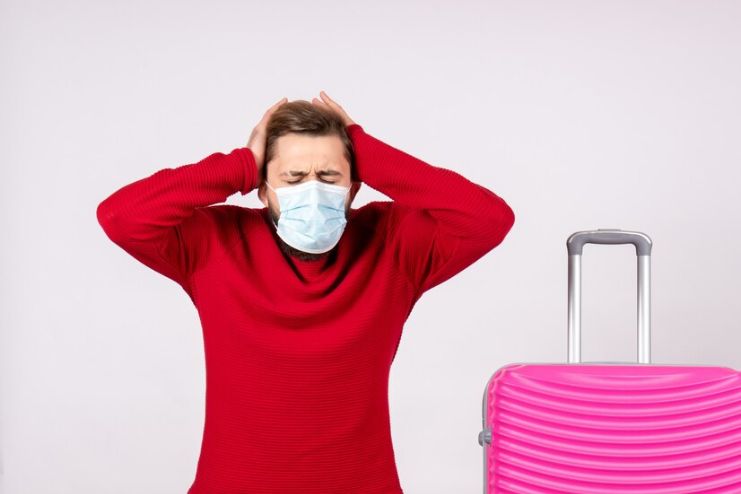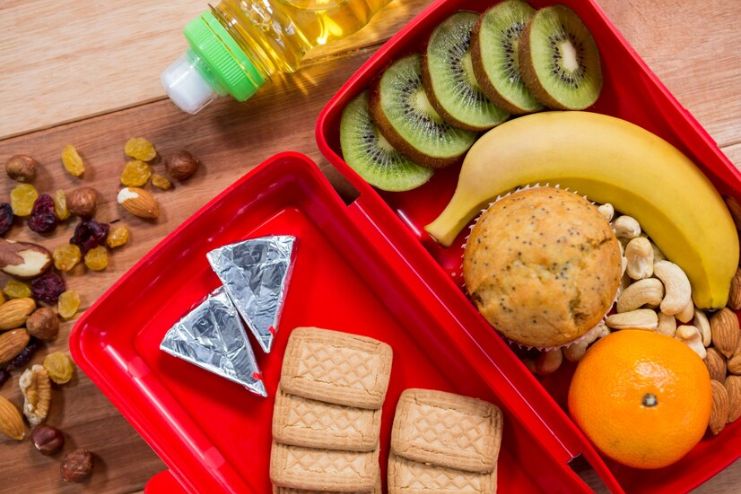Affiliate Disclaimer
Some links in this article are affiliate links. We may earn a small commission if you make a purchase through these links, at no extra cost to you. We only recommend products we find useful to our readersTravel can disrupt your daily life and cause you to fall out of sync with healthy habits. This can lead to irregular meals, irregular sleeping, and indulging in food we usually do not consume. It also impacts our gut health and overall well-being. While we travel for rejuvenation, it also becomes necessary to prioritize our gut health. We often overlook our gut health during travel and disregard that poor eating habits can lead to damage later.
Maintaining optimal gut health is crucial for overall well-being. The gut plays a vital role in digestion, immune function, and nutrient absorption. However, we often neglect this important aspect in the excitement of travel and exploration. In this article, let us explore challenges for gut health while traveling, the role of the gut microbiome, gut issues, and tips to overcome them.
Common Gut Health Challenges During Travel

Here’s how travel can impact your gut health:
Dehydration:
Dehydration is one of the biggest challenges travelers face. Not having sufficient water intake can lead to dehydration, and air travel can cause it, as airplane cabins have lower humidity levels.
- Dehydration impacts your digestion adversely.
- It creates digestion issues while traveling, as it is slowed down due to the lack of water. This slows food movement through the digestive tract and disturbs gut bacteria’s balance, ultimately impacting nutrient absorption.
Unfamiliar Foods:
Travel often leads to eating unfamiliar foods irregularly, severely impacting gut health. You may consume too much sugar, caffeine, or oily foods, leading to an unhealthy gut.
Too much sugar can:
- Create an imbalance between healthy and unhealthy bacteria.
- Increase inflammation and spike blood sugar levels.
Excessive caffeine can:
- Cause digestive problems.
- Put you at risk of heart disease.
Oily foods can:
- Lead to an increase in unhealthy bacteria.
- Decrease the number of healthy gut bacteria.
- Contribute to weight gain.
- It Causes diarrhea, as they are difficult to digest.
Other unhealthy foods that impact your gut health are refined grains, processed foods, and junk food.
New Bacteria and Viruses:
The risk of exposure to new bacteria and viruses while traveling can never be underestimated. This might cause diarrhea or any other digestive issues.
Traveler diarrhea occurs when you become infected by bacteria, viruses, or parasites during your travels. It is a digestive tract disorder generally associated with loose stools and stomach aches.
Sleep Disruptions:
Travel can sometimes lead to jet lag. This disrupts your body’s natural circadian rhythm, usually caused by time zone changes. This majorly impacts your gut-brain communication and alters gut microbiota function. This can often make you feel moody and experience digestive discomfort. This usually happens due to a complex interplay between the hormones, neural pathways, and microbiome.
What is a Gut Microbiome?
Your gut microbiome consists of trillions of microorganisms that affect each other and their environment in many ways. It can be called a microscopic world within your body’s big world.
When you travel, your sleep cycle can be disturbed, hampering the natural rhythm of your gut bacteria. This eventually leads to a shift in certain microbial species, often known as gut dysbiosis.
Effects of Stress and Dietary Changes on Gut Health

Environmental shifts, stress, and dietary changes can significantly impact gut bacteria. As mentioned earlier, it alters the composition of the gut microbiome, potentially leading to various digestive disorders.
Stress primarily influences gut health while traveling. It can lead to –
Hormonal Changes:
- When you’re stressed, the stress hormone cortisol is released. This disrupts gut motility, affects digestion, and creates an imbalance in gut bacteria.
Blood Flow Reduction:
- Stress can also lead to lesser blood flow to the digestive tract while hindering the delivery of nutrients to the gut.
Leaky Gut:
- If you are under chronic stress, you can experience a leaky gut, where the intestinal line becomes thin. This allows harmful substances to enter the bloodstream.
How Diet Changes Impact Gut Imbalances:
Here are a few dietary changes that can highly impact your gut while you are on the go.
● Low Fiber Intake:
Digestive issues while traveling can be due to the lack of fiber in food. This cuts down the good bacteria, which affects gut health.
● High Sugar Consumption:
High-sugar foods aid in the growth of harmful bacteria, which thrive on simple carbs, leading to dysbiosis.
● Processed Food Diet:
Our body needs diverse nutrients absent in processed foods consumed during travel. The additives in these negatively impact the gut microbiome.
Good gut health is essential for a great travel experience. Taking simple and effective measures can help your digestive system while making the most of your travel.
Tips to Have Good Gut Health While Traveling
Stay Hydrated:
- Ensure you are hydrated. Proper hydration helps keep the mucosal lining intact. Drink bottled water that is contamination-free to prevent exposure to harmful pathogens.
- Proper hydration supports digestion. It also helps prevent constipation, diarrhea, etc.
Pack Gut-Friendly Snacks:

You can pack gut-friendly snacks, such as dried nuts and fruits. These regulate bowel movements and help promote good bacteria.
Probiotics and Prebiotics:
Include probiotic or prebiotic-rich foods such as yogurt, garlic, etc, which help maintain a balanced gut microbiome while reducing inflammation.
Prebiotics also help with digestion and nutrient absorption.
Avoid Risky Foods:
Street foods can have harmful bacteria that can lead to foodborne diseases.
Ensure you wash fruits or vegetables while traveling, as these can also result in digestive disorders.
Keep unpasteurized products at a distance, as these contain pathogens. Always choose pasteurized options.
Have a Consistent Routine:
As mentioned, circadian rhythm and gut microbiome are closely connected. Consistent meal timings help ensure maximum digestion and nutrient absorption.
Besides that, a routine light exercise works wonders for good gut health. Even traveling, you can do this to reduce stress and support gut health.
Addressing Gut Issues While Traveling

Here are a few gut issues you might encounter while traveling. Let’s examine how to address those issues on the go.
Constipation:
To combat constipation, you must-
- Keep yourself hydrated: Drink 8-10 glasses of water every day.
- Include dietary fiber: Increase your fiber intake, making the stools smooth.
- Take insoluble fibers: Whole grains, fruits, vegetables, and other such foods contain insoluble fiber, which helps with digestion.
Bloating:
To avoid bloating while traveling, you must consider –
- Eating smaller regular meals.
- Chewing the food properly
- Take up light exercises after meals, mostly walking.
Post Travel Gut Reset
Once you are back home, focusing on your gut health becomes easier. This is when it becomes more important to reset your gut.
Here’s how you can do this –
- Opt for a regular, healthy diet as soon as you return.
- Have smaller meals instead of heavier ones.
- Include more fruits, vegetables, lean proteins, yogurt, etc.
- Take ample rest, and allow your body to regulate the circadian rhythm.
Conclusion
A healthy gut is an important aspect of smooth travel. If you neglect your gut health while traveling, you might face digestive disorders such as constipation, bloating, and diarrhea. You should proactively care for your gut through proper hydration, mindful eating, and exercise during your travels.
A few easy ways are to pack healthy snacks, have consistent meal routines, and exercise extensively to help you achieve a healthy gut.
In this Article



















